Juicing During Breast Cancer Treatment

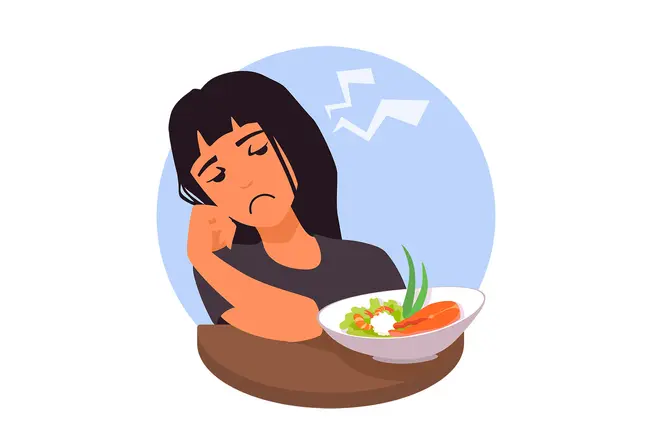
Healthy Juices During Breast Cancer Treatment
When you're being treated for breast cancer, there may be days when you don't want to eat anything. Treatment can change the way you're able to taste and smell, too. It's important to listen to your body, but healthy food is a form of medicine. It rebuilds healthy cells and tissues, gives you strength, and helps fight infection. Healthy juices can be an easy way to add fruits and vegetables to your diet.
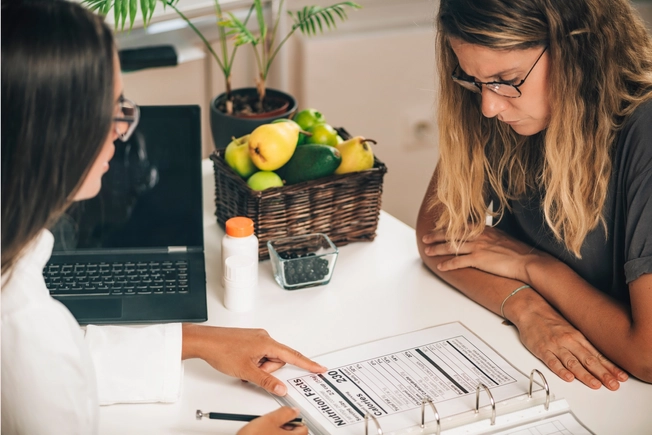
The Benefits of Juices
Drinking juice helps you get a concentrated form of nutrients when eating whole foods is difficult. Juices are easier to digest and can help you stay hydrated. They may also help manage treatment side effects such as fatigue and nausea. Choose a variety of colorful produce to ensure you're getting a wide range of nutrients.
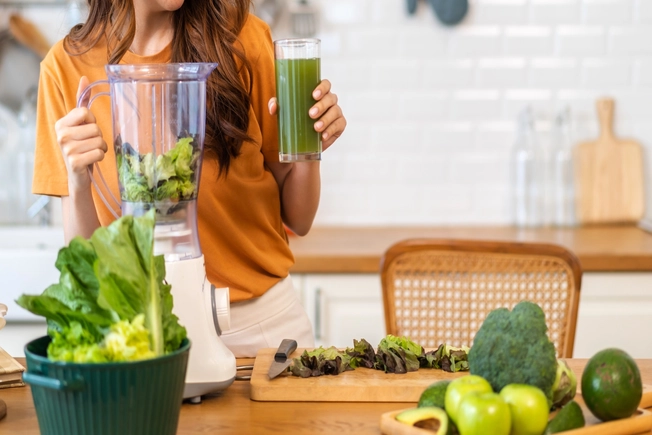
Nutrient-Rich Green Juices
Green juices are packed with nutrients that may support your health during breast cancer treatment. Ingredients such as kale, spinach, and other leafy greens are rich in antioxidants, which may help protect your cells from damage. These juices also contain vitamins A, C, and K, as well as minerals such as iron and calcium. To make green juices tastier, try adding a small amount of apple or pear juice for sweetness.
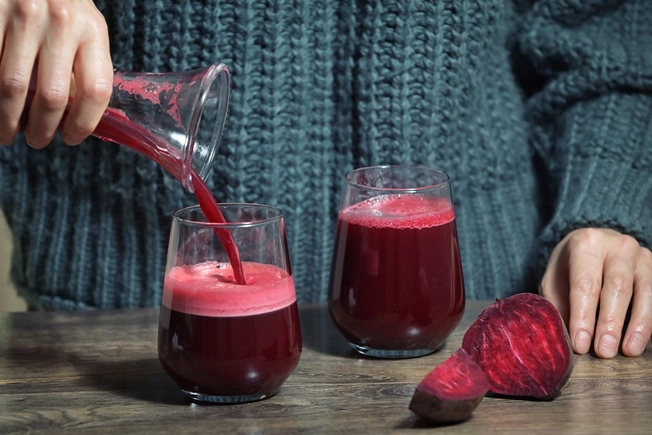
Beet Juice
Beets contain betalains, which have antioxidant and anti-inflammatory properties. To make beet juice more appealing, try mixing it with other vegetable or fruit juices, such as carrot, orange, or apple. Start with small amounts, as beet juice can be quite strong.
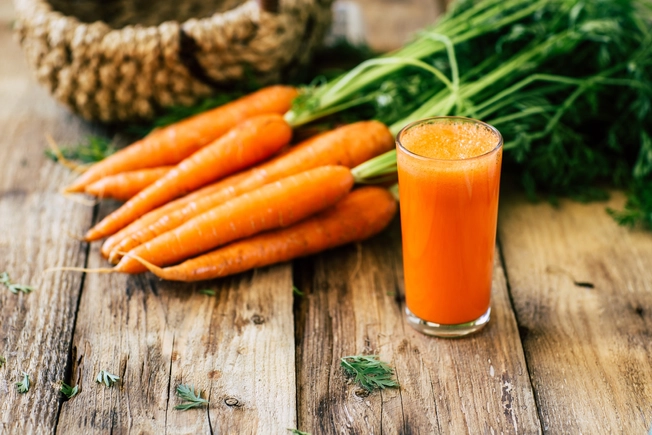
Carrot Juice
Carrot juice is an excellent source of beta-carotene, which your body converts to vitamin A. This nutrient helps maintain a healthy immune system and supports cell growth. The antioxidants in carrot juice may also help protect your cells from damage. You can also add a small piece of ginger to help fight nausea.
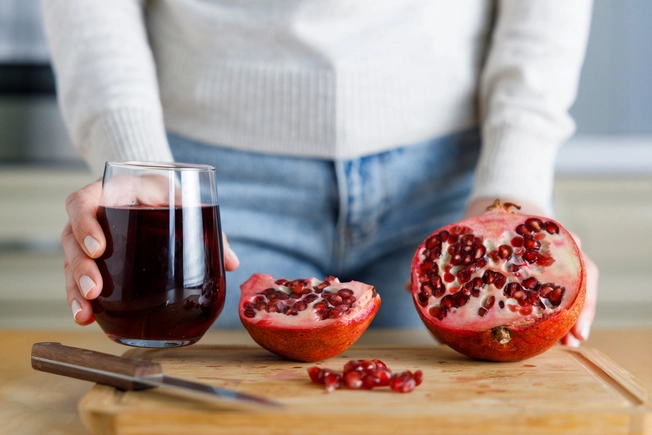
Pomegranate Juice
Pomegranate juice is rich in antioxidants, particularly polyphenols, which may help protect cells from damage. These naturally occurring chemical compounds have anti-inflammatory properties that can suppress cancer growth. When choosing pomegranate juice, opt for 100% juice without added sugars. It has a strong flavor, so you might want to mix it with water or other juices.
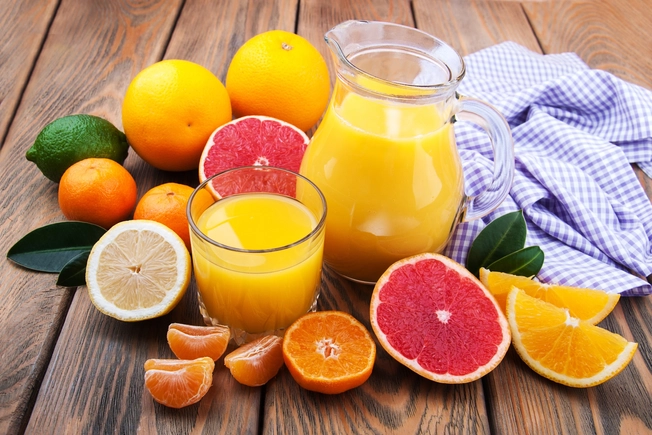
Citrus Juices
Citrus juices from oranges and lemons are excellent sources of vitamin C, which supports immune function and helps your body absorb iron from plant-based foods. These juices also contain flavonoids, which have antioxidant properties. If you have mouth sores from treatment, citrus juices might be too acidic. In that case, try mixing them with water. Avoid grapefruit juice, which can interact with chemotherapy and certain drugs.
PHOTO CREDITS:
Slide 1 - Lilanakani / Shutterstock
Slide 2 - Microgen / Shutterstock
Slide 3 - Art_Photo / Shutterstock
Slide 4 - mady70 / Shutterstock
Slide 5 - Iakovleva Daria / Shutterstock
Slide 6 - Ahmet Misirligul / Shutterstock
Slide 7 - Es75 / Shutterstock
SOURCES:
Mayo Clinic: "Breast cancer."
Susan G. Komen: "Managing Side Effects and Supportive Care -- Metastatic Breast Cancer," "Beta-carotene."
Yale Medicine: "Perk Up Your Appetite During Cancer Treatment."
Breastcancer.org: "Healthy Eating During Treatment," "Expert Tips on Eating Well During Chemotherapy."
Yasi Ansari, registered dietitian nutritionist; national media spokesperson, Academy of Nutrition and Dietetics, Los Angeles.
UT Southwestern Medical Center: "5 foods containing potentially heart-healthy polyphenols."
Academy of Nutrition and Dietetics: "The Beginner's Guide to Cruciferous Vegetables."
Memorial Sloan Kettering Cancer Center: "Ginger."
University of Rochester Medical Center: "Ginger Quells Cancer Patients' Nausea From Chemotherapy."
OncoLink: "Protein Needs During Cancer Treatment."